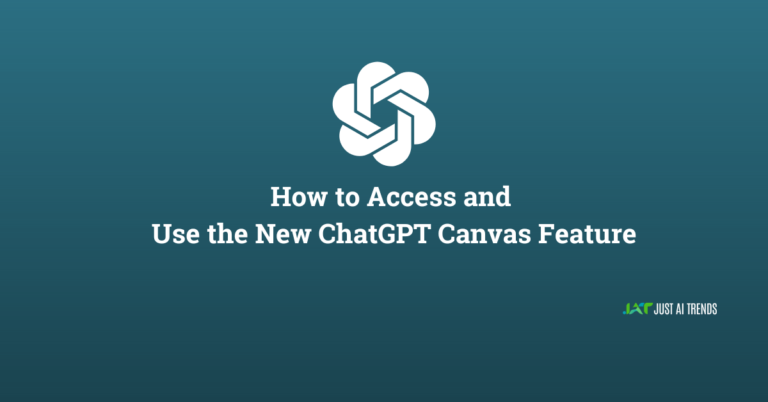Written by: Ameerah
What is an AI Audio Enhancer?
An AI audio enhancer is a software tool that uses artificial intelligence to improve the quality of your audio recordings. It does this by analyzing the audio and applying machine learning algorithms to:
- Reduce background noise: This is a common issue with recordings made in less-than-ideal environments. AI audio enhancers can identify and remove unwanted noise, such as traffic hum, air conditioning, or crowd chatter, leaving the desired audio (like speech or music) clearer.
- Enhance speech clarity: AI can be used to make speech easier to understand. This might involve reducing echo or sibilance (excessive emphasis on “s” sounds), or even boosting the volume of quieter voices.
- Fine-tune the overall audio: Some AI enhancers allow you to adjust things like bass, treble, and stereo imaging to create a more pleasing listening experience.
AI audio enhancers are becoming increasingly popular for a variety of purposes, including:
- Content creation: Podcasters, YouTubers, and other content creators can use AI to improve the audio quality of their recordings, making them more professional-sounding.
- Music production: Musicians and producers can use AI to clean up recordings, enhance specific instruments, and master their tracks.
- Video conferencing: AI audio enhancers can be used to improve the sound quality of video calls, making them clearer and more focused.
There are a number of AI audio enhancer tools available, both as standalone software and as part of online editing platforms. If you’re interested in learning more, you can search for “AI audio enhancer” online.
How Does AI audio enhancers work
AI audio enhancers work their magic through the power of machine learning algorithms. Here’s a breakdown of the process:
- Audio Analysis: The first step involves feeding your audio file into the AI enhancer. The software then analyzes the audio data, paying close attention to things like sound waves, frequencies, and background noises.
- Noise Recognition: The AI algorithms are trained on vast amounts of audio data, allowing them to identify and distinguish between desired audio (like speech or music) and unwanted background noise.
- Noise Reduction: Once the noise is identified, the AI can employ various techniques to remove it. This might involve filtering out specific frequencies associated with the noise, or using more sophisticated noise cancellation algorithms.
- Speech Enhancement: For recordings with speech, the AI can focus on improving clarity. This could involve techniques like reducing echo or sibilance, or even amplifying quieter voices.
- Audio Adjustments: Some AI enhancers provide more flexibility. They might allow you to fine-tune the overall sound by adjusting things like bass, treble, and stereo imaging based on your preferences.
Overall, it’s like having a smart audio editor that can analyze and automatically improve your recordings based on what it’s learned from countless hours of audio data. It’s important to note that AI enhancers aren’t perfect, and sometimes achieving the best results might require some tweaking and experimentation.
Best AI Audio Enhancers
Choosing the perfect AI audio enhancer depends on your needs and budget. Here are some top contenders in 2024:
- Adobe Audition: A professional-grade audio editor with powerful AI features for mastering, noise reduction, and audio restoration. Ideal for experienced users and audio professionals. (Subscription-based)
- LANDR: Focuses on AI mastering for music production. Offers easy-to-use controls and delivers professional-sounding results. Great for musicians and podcasters seeking a polished sound. (Subscription-based)
- LALAL.AI: Excels at AI-powered audio separation, isolating vocals and instruments with high precision. Useful for remixing, sound design, and mastering individual tracks. (Pay-per-use or subscription)
- Descript: An all-in-one audio and video editing platform with integrated AI features for noise reduction, transcription, and overdubbing. Well-suited for content creators who need a streamlined workflow. (Subscription-based)
- Adobe Podcast AI: (Potentially unreleased yet) Integrates with Adobe Audition for podcast-specific AI tools like background noise reduction, dialogue enhancement, and automatic leveling. Promising option for podcast editors. (Subscription likely)
- VEED.IO: Cloud-based video editing platform with built-in AI audio enhancement features like noise reduction and voice leveling. Convenient for quick online edits. (Free and paid plans)
- Auphonic: An automated audio mastering service with AI-powered features for loudness normalization, noise reduction, and speech enhancement. Good for podcasters and broadcasters seeking a set-and-forget solution. (Pay-per-use or subscription)
- AI Mastering: A web-based mastering service using AI algorithms for professional-sounding audio mastering. Offers various mastering profiles for different genres. (Pay-per-use)
- Jamahook: Focuses on real-time AI noise reduction for video conferencing and online calls. Ideal for improving audio quality during communication. (Subscription-based)
- Krisp: Another real-time AI noise cancellation tool specifically designed for video calls and online meetings. Effectively removes background noise for clear communication. (Free and paid plans)
Choosing the Right Enhancer:
Consider these factors:
- Needs: Do you need basic noise reduction, advanced audio editing, or real-time communication enhancement?
- Skill Level: Professional tools like Adobe Audition offer more control, while user-friendly options like VEED.IO cater to beginners.
- Budget: Free options exist (Krisp), but some require subscriptions (LANDR, Descript).
Conclusion
AI audio enhancers are revolutionizing the way we experience sound. By harnessing the power of machine learning, these tools can significantly improve the quality of your audio recordings, no matter your skill level or budget. Whether you’re a content creator, musician, podcaster, or simply want clearer communication during video calls, there’s an AI audio enhancer out there to meet your needs.
FAQs
- What are the benefits of using an AI audio enhancer?
AI audio enhancers offer a variety of benefits, including:
- Reduced background noise: Eliminate unwanted noise like traffic hum, air conditioning, or crowd chatter for cleaner-sounding audio.
- Enhanced speech clarity: Improve the intelligibility of speech by reducing echo, sibilance, or boosting quieter voices.
- Professional-sounding results: Achieve a more polished audio quality, especially beneficial for content creation and music production.
- Simplified workflow: Some AI enhancers offer automated processing, saving you time and effort in editing.
- How do I choose the right AI audio enhancer?
Consider these factors when making your choice:
- Needs: What do you want to achieve? Basic noise reduction, advanced editing, or real-time communication enhancement?
- Skill level: Are you a beginner or an experienced audio editor? Choose a tool that matches your comfort level.
- Budget: Free options exist, while some require subscriptions or pay-per-use models.
- Are there any limitations to AI audio enhancers?
While AI enhancers are powerful, they aren’t perfect. Here are some limitations to consider:
- Complex noise: AI might struggle with very complex background noise environments.
- Audio quality loss: In extreme cases, aggressive noise reduction can slightly reduce audio quality.
- Limited control: Some AI enhancers offer less control over the final sound compared to traditional audio editing software.


























2 Responses
Dear,
I truly enjoyed your recent article on a specific topic:https://justaitrends.com/
I’m a content writer experienced in your niche and would like to contribute.
If you accept guest posts, I can provide samples and discuss topics. Excited about collaborating.
Best regards,
hey, Expert
hope you are well for guest post contribution please visit our write for us page
thankyou